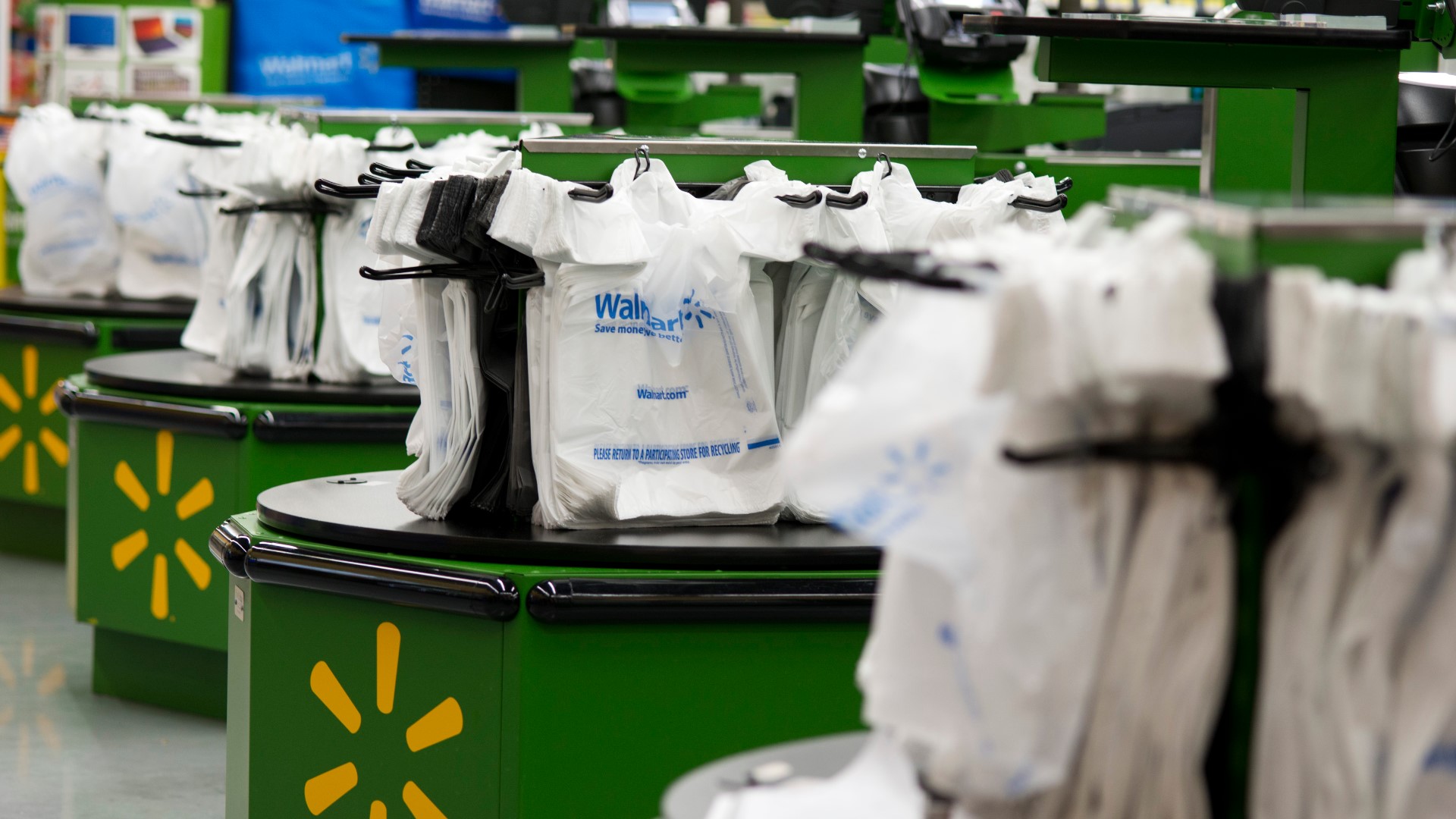FALLS CHURCH, Va. — Falls Church is now charging five cents for every plastic bag used at a host of retailers within the city in an effort to discourage single-use disposable bags and promote environmentalism.
Approximately 20 stores are affected by the new tax, which went into effect on April 1. Mandated participants include grocery stores, convenience stores and drug stores.
The city is joining the City of Alexandria, Arlington County and Fairfax County, which all had their taxes start on Jan. 1. The Virginia General Assembly passed legislation in 2020 that lets municipalities put the ordinances in place.
Shoppers should keep in mind that some plastic bags, like those used for meat, seafood and vegetables, are exempt. All customers can avoid tacking the extra cents onto their bill by bringing reusable bags or requesting paper bags instead.
The city said that revenue from the tax will go toward environmental cleanup programs, pollution and litter mitigation programs, educational programs on environmental waste reduction and providing reusable bags to neighbors in need.
"Plastic bags frequently end up in local watersheds, polluting our natural landscapes and negatively impacting the fish and wildlife that depend on clean waterways," the city explains on its website. "The plastic bag tax is intended to influence consumer behavior by discouraging consumers from using single-use disposable plastic bags, thereby reducing plastic bag residue in our local streams, rivers and lakes."
The city also specified that, if you are a SNAP or WIC beneficiary, you can pick up a bag from Housing and Human Services in City Hall (300 Park Ave.) from 10 a.m. to 3 p.m., Monday through Friday, excluding holidays.
All questions regarding the reusable bag giveaway can be directed to Housing and Human Services by emailing hhsinfo@fallschurchva.gov or calling 703-248-5005 (TTY 711).
"In terms of overall energy use, the friendliest bag option is a reusable shopping bag," city communications stated. "Making the switch to a reusable bag saves about 53 megawatt (MW) of energy per year, as well as 7 liters of water."

